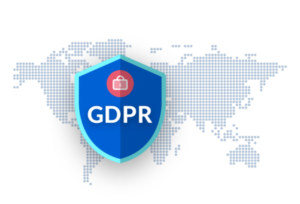THE General Data Protection Regulation (GDPR) has become a key pillar of digital life in Europe. Since May 2018, it has aimed to strengthen the protection of EU citizens' data. But Who is Affected by GDPR really? This article explores the different actors affected by the GDPR.
GDPR Definition:
The GDPR aims to protect the personal data of EU citizens. Its core principles include transparency, data minimization, accuracy, and confidentiality.
Indeed, the GDPR was introduced to harmonize data protection laws across Europe. It applies to all organizations, public or private, processing personal data of EU residents. The regulation emphasizes transparency, accuracy, and data confidentiality.

Companies and organizations affected by the GDPR
THE GDPR applies to a wide range of entities, whether multinational companies, SMEs, non-profit organizations, or even freelancers. The regulation does not differentiate based on size or sector of activity; rather, it focuses on the type of data processed and how it is handled.
- Criteria concerned: THE GDPR applies to any organization processing personal data of European Union residents, whether based in the EU or not. If a company offers goods or services to EU citizens, or monitors their behavior, it must comply with the regulation. This also includes subcontractors who process data on behalf of other organizations.
- Specific obligations: GDPR obligations are broad and can vary depending on the nature and size of the organization. They include obtaining explicit consent for data processing, appointing a Data Protection Officer (DPO) in certain cases, and adopting appropriate security measures to protect data. Businesses must also be prepared to promptly report any data breaches to the relevant authorities.
- Potential sanctions: Failure to comply with the GDPR can result in heavy penalties. Fines can reach up to €20 million or €41.3T of the company's global annual turnover, whichever is higher. These penalties can be imposed for various violations, such as failure to respect the rights of individuals or failure to implement adequate security measures.
The scope of the GDPR is therefore vast and its implications are far-reaching. Businesses and organizations must recognize their responsibility for data protection and take the necessary steps to ensure compliance. Correctly understanding and implementing the GDPR are not only legal obligations, but can also become a competitive advantage by strengthening the trust of customers and partners.
Individuals and the GDPR
THE General Data Protection Regulation (GDPR) doesn't just affect businesses and organizations. It has a significant impact on the rights and protections of individuals within the European Union. Here's how it affects EU citizens:
- Rights of individuals: The GDPR establishes several important rights for individuals, including the right to access their personal data, to rectify it if it is inaccurate, and to erase it under certain conditions. There is also the right to data portability, allowing individuals to transfer their data from one service to another, and the right to object to the processing of their data in certain circumstances.
- Increased Control: The GDPR gives individuals greater control over how their data is used. Organizations must obtain clear and explicit consent to process personal data, and this consent can be withdrawn at any time. Individuals also have the right to be informed how their data is processed, by whom, and for what purpose.
- Recourse and complaints: If an individual believes that their rights have been violated, they have the right to lodge a complaint with the national data protection supervisory authority. In some cases, they may also be entitled to compensation.
- Awareness and education: THE GDPR has also led to increased awareness of data protection. Many organizations now provide clearer and more detailed information about how they use data, and there is greater awareness of online privacy risks.
In short, the GDPR strengthened individuals' rights regarding their personal data and imposed new obligations on the organizations that process it. This led to increased transparency and gave EU citizens more power over their personal information. The regulation emphasizes that data protection is not just a business concern, but a fundamental right that must be respected and protected.
Special Cases and Exemptions
Some exemptions apply, particularly for small businesses processing data on a smaller scale. Nonprofit organizations may also be subject to different rules.
Conclusion
THE GDPR is a crucial element in the modern digital landscape, affecting not only businesses and organizations, but also individuals. Compliance is essential and requires a clear understanding of obligations and rights. Data protection is no longer an option, but a legal responsibility for everyone who touches the personal information of EU residents.
